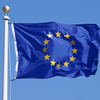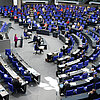International Pandemic Accord
The COVID-19 pandemic has revealed that the international community was not sufficiently prepared for pandemics. The task now is to learn lessons from this pandemic to ensure that the international community is better prepared for future health crises and able to mount a swift and targeted response to an emerging pandemic.
The decision to draft an international Pandemic Accord was adopted at a World Health Assembly Special Session in December 2021 by the 194 member states of the World Health Organization (WHO), including Germany.
The international Pandemic Accord provides a unique opportunity to strengthen regional, national and global capacities so as to make infectious disease outbreaks less likely and, in particular, prevent them from spiralling into pandemics. These efforts require a treaty with clear-cut provisions that is binding under international law.
Negotiations to be concluded by May 2025 at the latest
An Intergovernmental Negotiating Body (INB) comprised of the 194 WHO Member States was established for the purpose of drafting and negotiating the international Pandemic Accord. This means that its development process is led entirely by the WHO member states.
The public can access all of the Intergovernmental Negotiating Body’s documentation at its website (who.int). Right from the outset, moreover, the development process has been based on inclusiveness – comprising, in addition to the INB meetings of the WHO member states, also several public hearings of non-State actors and technical presentations from experts on selected topics.
During the 77th World Health Assembly (WHA), the WHO’s 194 member states agreed to extend the mandate to conclude the negotiation process. The objective is to conclude the negotiations as quickly as possible and present the results at the 78th WHA in 2025 or earlier at a special session of the WHA, ideally in 2024.
Additional information
-
International Health Regulations: amendments (FAQ)
Questions and answers relating to the International Health Regulations and the process for amending them.
-
Pandemic prevention, preparedness and response accord (FAQ)
Why did WHO’s Member States decide to create an accord for pandemic preparedness and response?




























